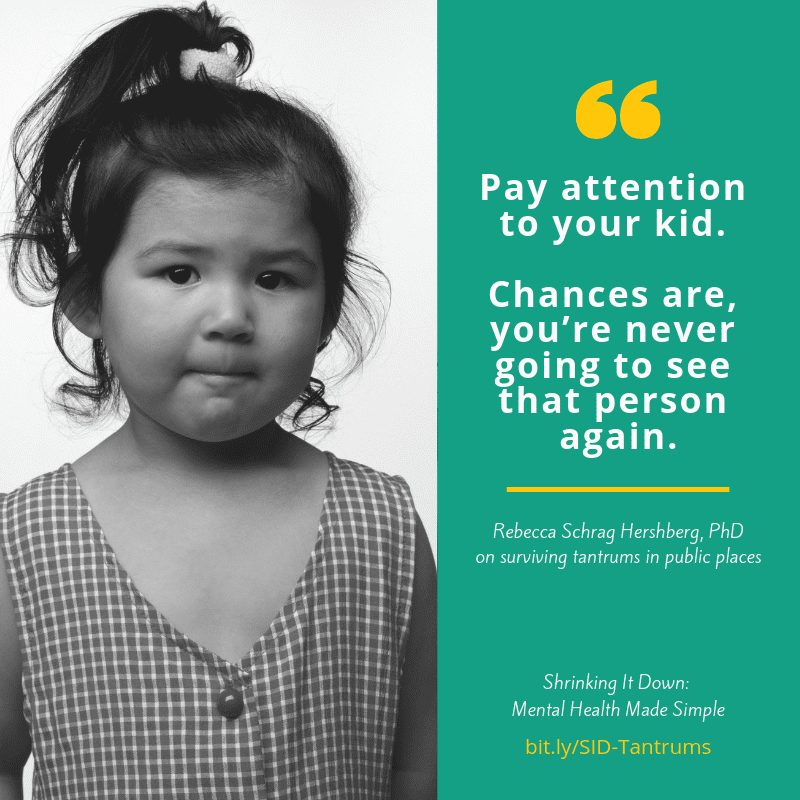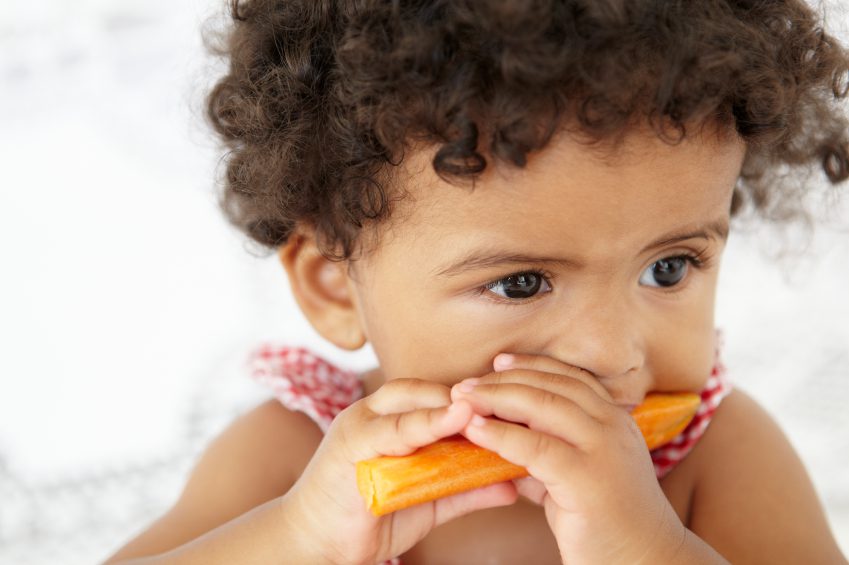What If My Child Has Tantrums?
Posted in: Multimedia, Pre-School, Videos, You & Your Family
Topics: Behavioral Issues, Child + Adolescent Development
“Meltdown” is such a funny word to use for a tantrum.
The word itself actually comes from the nuclear industry. It refers to that horrific moment when the reactor core has burnt out of control, and at any given moment, radioactive dust will spew all over the sky. It’s best to just get the heck out of the way when there’s a nuclear meltdown—there’s no reasoning with a broken nuclear power plant…
And there you have it. That’s exactly why we describe little kids’ tantrums as meltdowns. Reasoning isn’t really possible; most parents want to take shelter. Some yell back, some give time-outs, and some, despite their better judgment, do in fact try to reason with the toddler or school-aged kid.
Take Julia. Her parents dutifully come home everyday at 6pm, send the sitter on her way, and sit down for a family dinner. Around age 5, Julia starts to express her opinions about this arrangement.
“Julia, honey, what’s the matter? Why are you so angry?”
“Arrrrhhhhhgggggg!”
Often, another parent steps in and tries to take the reigns.
“Julia, that’s no way to talk to your mother. What do you have to say for yourself?”
“Arrrhhhhggggggg!”
This is why they call it a meltdown.
So, let’s talk tantrums.
First, we all have them. Kids might have them more often, but unless you’re a Zen master, we can be pretty sure that everyone has gotten really mad from time to time. “Losing it” is, in fact, a kind of normal regression—a backwards developmental movement. When adults have tantrums, they remind us of little kids.
When little kids yell and scream, they also remind us of little kids. And the funny thing about parenting, is that we often have a hard time when our little kids act like little kids, especially if we’re tired, or frustrated, or simply want to help and just don’t know what’s wrong.
This means that all parents get angry from time to time when their kids have tantrums. Then we have our own tantrums, and all of a sudden, we’re all off to the little kid races.
We’re going to focus now on how to think about tantrums in toddlers and younger children—maybe age 2 to around age 8 or 9.
There are two problems with getting angry at your kids when they have tantrums:
- Once they’re in the midst of a tantrum, they actually can’t stop themselves, and
- When we get angry, they often mirror our anger, and then we decrease the likelihood of understanding what was wrong in the first place.
Think of a tantrum as a summertime thunderstorm. It rolls off the hillside with the wind blowing, the hail falling, and you’d never try to talk that storm out of happening. That’s in part because you know that most thunderstorms are short-lived. They stop on their own. That’s a lot like the brain of a child in the midst of meltdown—the storm will pass, but for the time being, you need to keep safe and wait it out.
Then, when things are calmer, try this:
“Julia…gosh you were mad.”
“Sniffle.”
“What was going on, honey?”
“I just want to play with you (sniffle).”
And bingo. You got an answer. Julia has been put to bed at the same time since she was 3. She can stay up later now, and she’d love to show you what she can do with her new block set.
Have you made a horrible mistake as a parent? Of course not. You’ve realized that your child is changing, and therefore, has different needs.
And, best of all, you realized it because you asked and she told you.
Like everything else in child behavior, if these kinds of tantrums become frequent or dangerous, you’ll probably need some professional help. But don’t beat yourself up for not understanding what your child wants. Just remember to check in after the tantrum to see if you can get some answers.
This article originally aired as an ABC News segment on 11/02/2009.

 Share
Share Tweet
Tweet





